By MJ Johns
Games have an unusual power as an interactive medium. They say a picture is worth a thousand words—how many more might it be worth when you can interact with, manipulate, and get feedback from the image you see? Playing a game is like having a conversation—you put a bit of yourself in, and you get something new and unique in return.
This article will look at examples of how games can impact people on an individual and societal level, and how a well-designed gaming experience can bring about positive change in our lives. From bringing families and friends closer together and connecting strangers across the globe to making science more accessible and innovating how we teach and learn, games have an incredible potential to change the human experience.
Games Connect Us
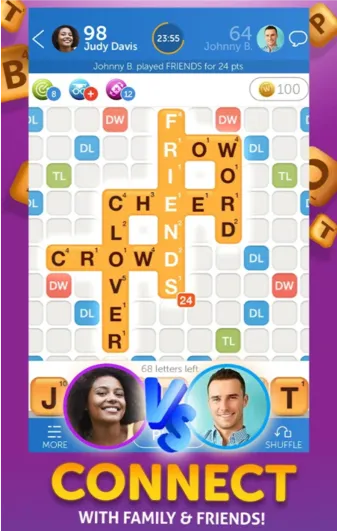
Online games are often thought of as places to play with anonymous strangers you will never meet. Many games, however, are designed to build connections between people who already know each other, or foster new friendships in the making.
Several years ago, when I was in grad school, my mom was diagnosed with cancer. She had several rounds of chemotherapy to go through, and being in another state, I felt powerless and unable to support her. We began playing “Words with Friends” so she would have something to do during the treatments—so she wouldn’t be alone.
We would start five to 10 games at a time, so there were always several available for her to take a turn. I would take my turns while on the bus or between classes, and tried to time them to line up with when her treatments would be.
The asynchronous nature of this gameplay allowed us each to play on our own schedule. Synchronous games like “Fortnite” or “League of Legends” allow players to connect in real time. When paired with voice chat, these games create an experience like “hanging out” together, even if players are miles apart.

In our current condition of quarantine, being able to connect and stay in touch has never been more important. Playing a game while talking to someone makes it so much more than a phone call. Though you are physically miles apart, in the game world you are right next to each other.
Games Empower Us
We all have days where real life weighs us down, making us feel small or unimportant. Games can help us turn the tide and give us confidence—in the game world I can build a house or take on a horde of zombies, or grow a field of crops to cook into perfect meals, or manage a zoo full of dinosaurs.
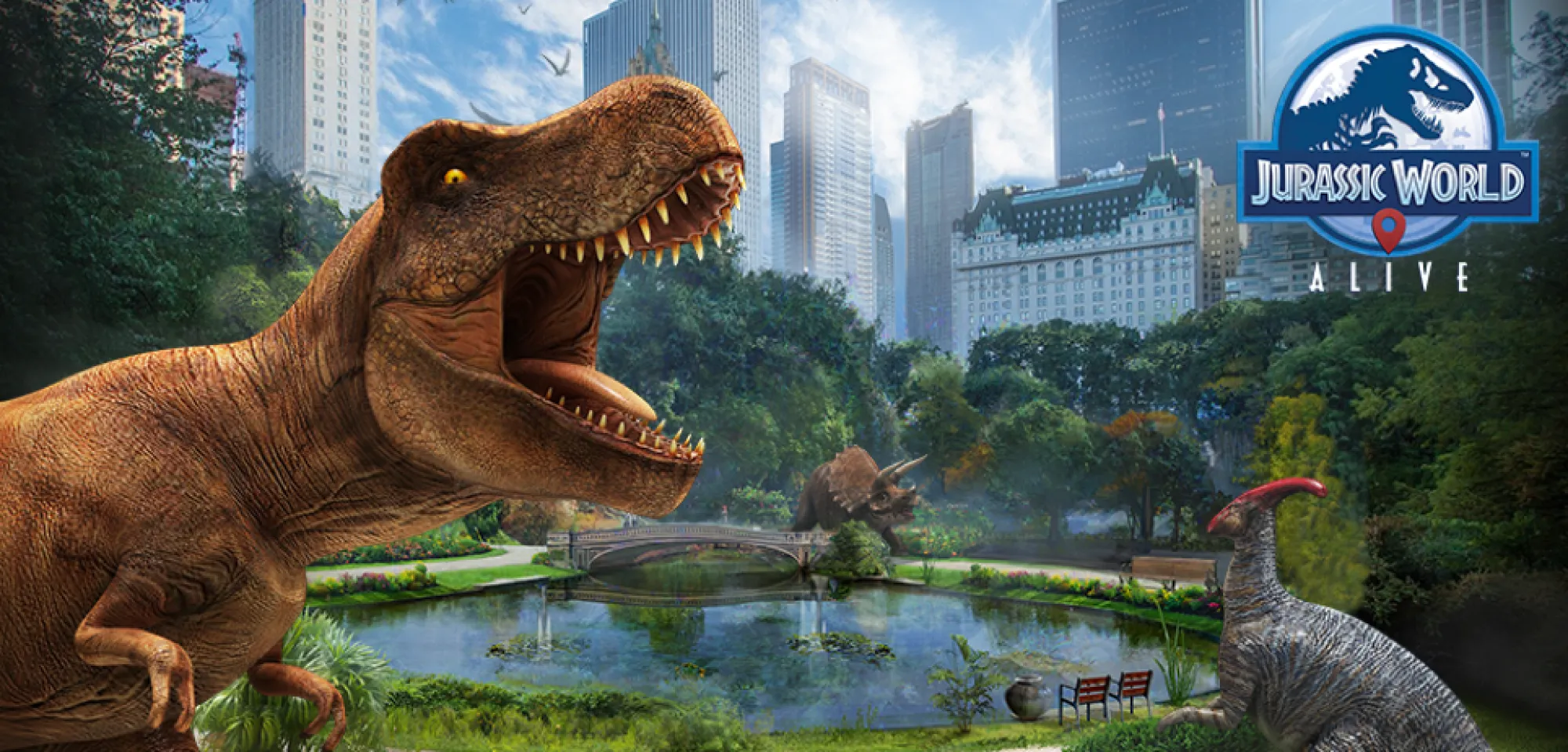
Games also give us the power to create an ideal version of ourselves, allowing us to recognize and build on our own best attributes.[1] Through living out these alternate character versions of ourselves, we also grow to have a better understanding of who we are.[2]
Games Spread Joy
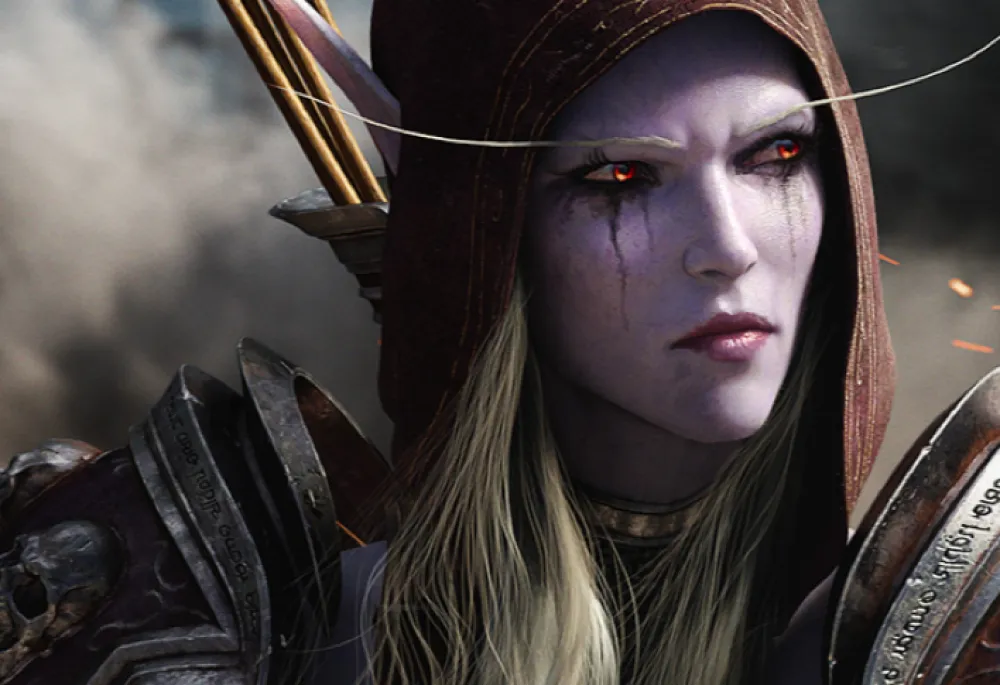
Playing a well-designed game, whether alone or with friends, brings a sense of joy. The feeling of accomplishment when solving a puzzle or beating your previous best score or unlocking new content not only makes us feel good about what we’ve done, it also makes us excited for more.
Games have demonstrated the ability to satisfy such psychological needs as competence, autonomy, and relatedness.[3] Many activities in our lives rely on extrinsic motivation, such as earning a paycheck or getting a grade. Games, on the other hand, rely on intrinsic motivation—our own internal desire to proceed with the activity, and the joy that results from taking part in it.
Games Educate
Due to the intrinsic motivation that drives player engagement, games have become powerful tools for the proliferation of knowledge and awareness. The process of learning to play a game closely parallels the experience of learning any new skill or acquiring new knowledge.
The advent of Virtual Reality (VR) has created a unique opportunity to build fully immersive virtual experiences. In my work with the VR Futures team at Planet Texas 2050, I have seen first-hand the value of immersing the user into the information you want to share. For the past year we have been developing a VR experience to raise awareness of the science behind climate change and population growth, and the impacts these stressors will have on Texas.
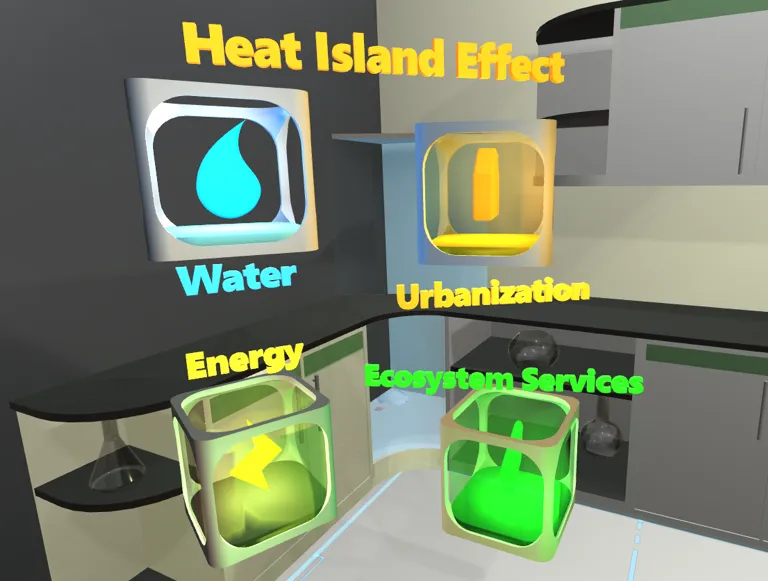
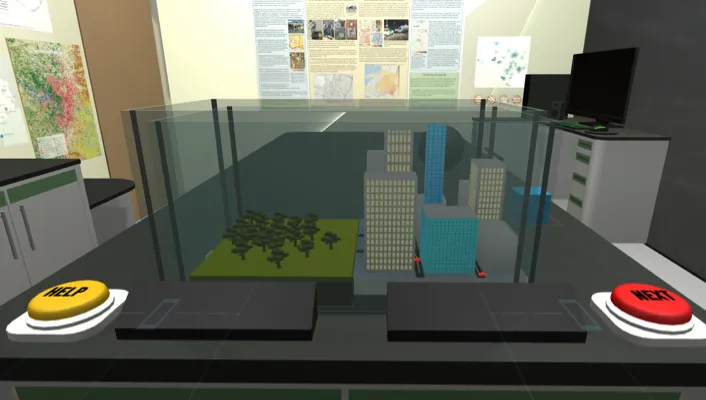
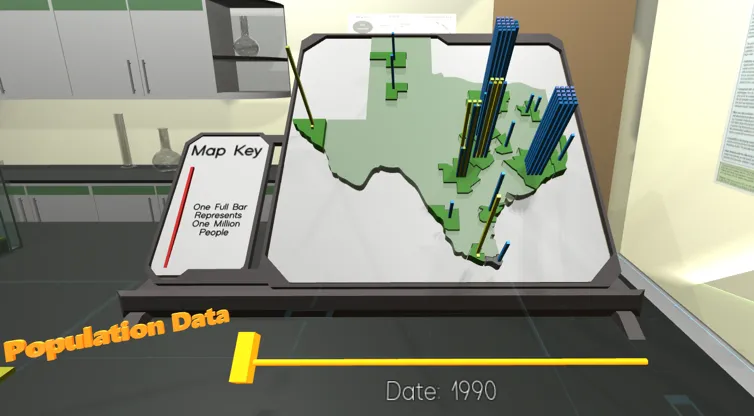

VR allows not just glimpses of the future, but also an enlightening exploration of the past. Austin-based VR studio FarBridge uses VR experiences to transport users to historic locations around the world that might otherwise be inaccessible to them. Virtual worlds have much to offer the field of education.
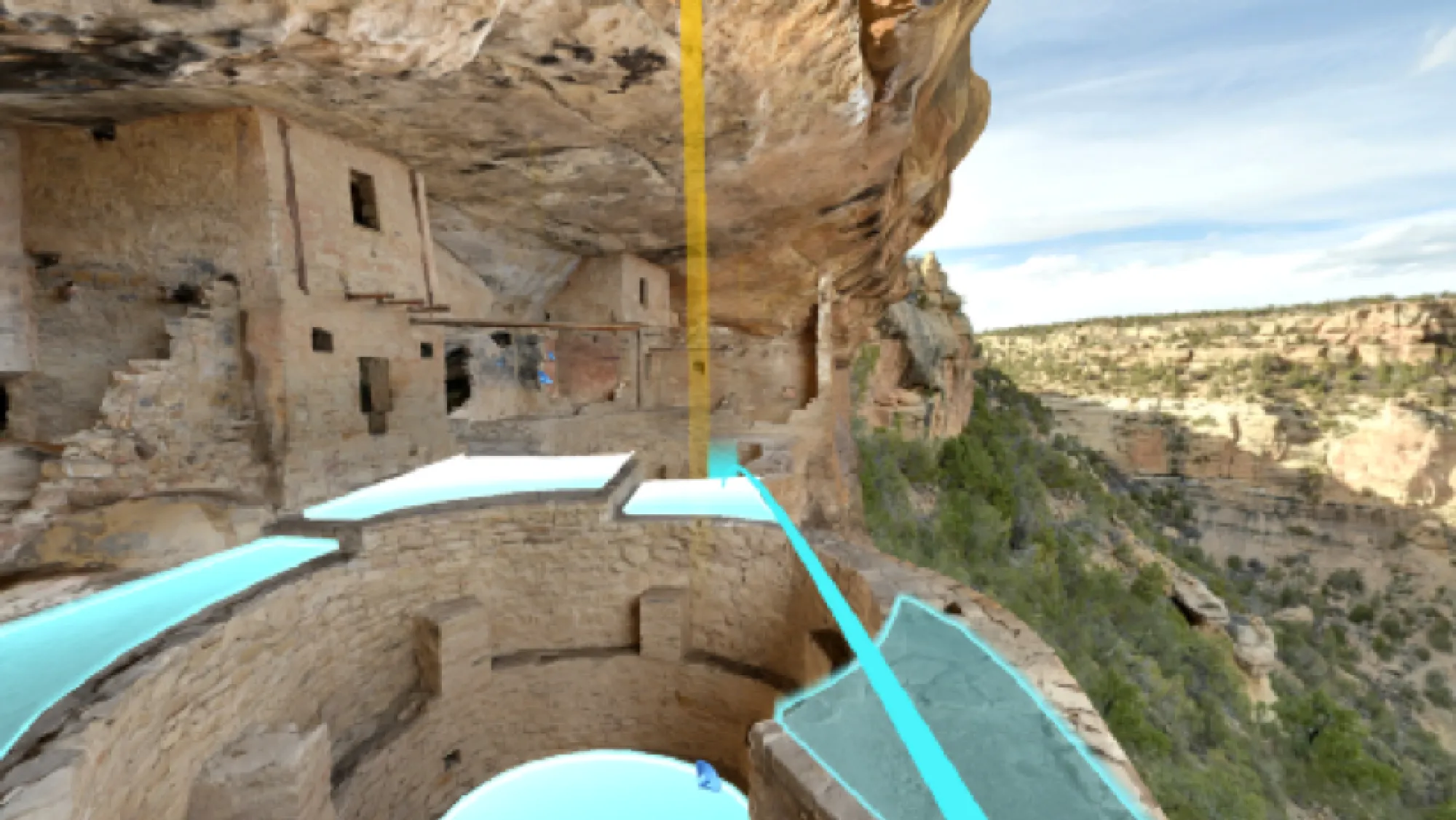
Games Transform
| Connect | Empower | Spread Joy | Educate |
|---|---|---|---|
| Games bring people together from anywhere in the world | Games build up our self-esteem and let us do things not normally possible |
Through intrinsic motivation, games satisfy our psychological needs |
Gaming platforms like VR open up a world of possibilities for education & awareness |
Through all these, games transform us as individuals and as a society. Games have the power to bring about positive change by connecting us, empowering us, spreading joy, and educating. There’s nothing quite like the experience of entering an alternate world to interact with things that would normally be outside our grasp.
Acknowledgments
Special thanks to my team on the VR Futures research project at Planet Texas 2050 for their insight—Dr. Fernanda Leite, Andrew Solis, Bing Han, Daniel Weeks, Jeshua Johnson, Lori Vanhoose, and Olivia Moriarty.
References
[1] Bessière, Katherine, A. Fleming Seay, and Sara Kiesler. “The Ideal Elf: Identity Exploration in World of Warcraft.” Cyberpsychology & Behavior, 10.4 (2007): 530–535. Web.
[2] Suler, J.R. “Identity Management in Cyberspace.” Journal of Applied Psychoanalytic Studies, 4 (2002), 455-460.
[3] Przybylski, A. K., Rigby, C.S., & Ryan, R.M. (2010). “A Motivational Model of Video Game Engagement.” Review of General Psychology, 14(2), 154–166. https://doi.org/10.1037/a0019440
Image Sources
Figure 1: https://play.google.com/store/apps/details?id=com.zynga.words3
Figure 2: https://www.epicgames.com/fortnite/en-US/save-the-world
Figure 3: http://www.jurassicworld.com/games
Figure 4: https://worldofwarcraft.com/en-us/return
Figure 5: https://www.chess.com/article/view/the-joy-of-reviewing-chess-games
Figure 9: https://medium.com/@FarBridge/masterworks-journey-through-history-a-new…

